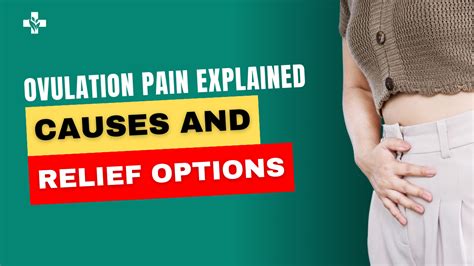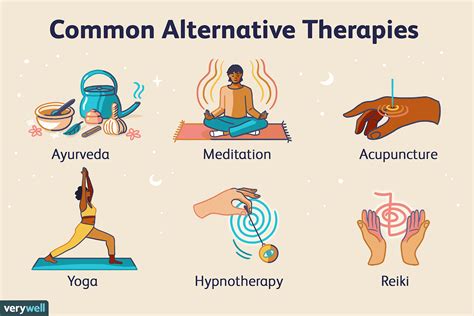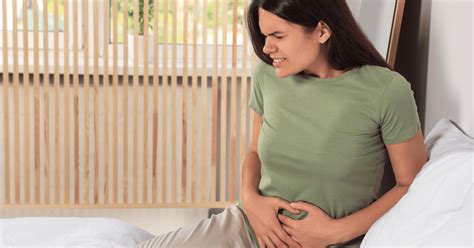Intro
Alleviate ovulation discomfort with natural relief methods, addressing cramps, bloating, and breast tenderness, to ease menstrual cycle symptoms and promote reproductive health.
For many women, ovulation can be a time of mild to moderate discomfort. As the body prepares for a potential pregnancy, various physical and hormonal changes occur, leading to symptoms such as abdominal pain, bloating, and mood swings. While these symptoms are usually temporary and resolve on their own, they can still significantly impact a woman's daily life and overall well-being. Understanding the causes of ovulation discomfort and exploring available relief options can help women better manage their symptoms and improve their quality of life.
Ovulation typically occurs midway through a woman's menstrual cycle, around day 14 of a 28-day cycle. During this time, the pituitary gland releases a surge of luteinizing hormone (LH), triggering the release of a mature egg from the ovary. As the egg travels through the fallopian tube, it can cause mild to moderate discomfort, including pain, cramping, and spotting. Additionally, the hormonal changes that occur during ovulation can lead to bloating, breast tenderness, and mood swings. While these symptoms are usually mild and temporary, they can still be uncomfortable and disrupt daily activities.
Despite the discomfort associated with ovulation, many women are unaware of the available relief options. Over-the-counter pain relievers, such as ibuprofen or acetaminophen, can help alleviate mild to moderate pain and cramping. Additionally, lifestyle changes, such as maintaining a healthy diet, staying hydrated, and engaging in regular exercise, can help reduce symptoms and improve overall well-being. Furthermore, alternative therapies, such as acupuncture and herbal supplements, have been shown to be effective in reducing ovulation discomfort. By understanding the causes of ovulation discomfort and exploring available relief options, women can take control of their symptoms and improve their quality of life.
Ovulation Discomfort Causes

Hormonal Changes
Hormonal changes are a primary cause of ovulation discomfort. The surge of LH triggers the release of a mature egg from the ovary, leading to a range of physical and emotional symptoms. Estrogen and progesterone levels also fluctuate during ovulation, contributing to bloating, breast tenderness, and mood swings. Understanding the hormonal changes that occur during ovulation can help women better manage their symptoms and improve their overall well-being.Physical Symptoms
Physical symptoms, such as pain, cramping, and spotting, are common during ovulation. These symptoms can range from mild to severe and can be accompanied by other physical symptoms, such as bloating, breast tenderness, and fatigue. In some cases, ovulation discomfort can be severe enough to disrupt daily activities and impact overall quality of life.Ovulation Discomfort Relief Options

Over-the-Counter Pain Relievers
Over-the-counter pain relievers, such as ibuprofen or acetaminophen, can help alleviate mild to moderate pain and cramping associated with ovulation. These medications work by reducing inflammation and relieving pain, allowing women to manage their symptoms and improve their overall well-being.Lifestyle Changes
Lifestyle changes, such as maintaining a healthy diet, staying hydrated, and engaging in regular exercise, can help reduce ovulation discomfort. A healthy diet rich in fruits, vegetables, and whole grains can help regulate hormonal balances and reduce symptoms. Staying hydrated can also help reduce bloating and improve overall well-being. Regular exercise, such as yoga or walking, can help reduce stress and anxiety, which can contribute to ovulation discomfort.Alternative Therapies

Acupuncture
Acupuncture is a traditional Chinese medicine technique that involves the insertion of thin needles into specific points on the body. This technique can help stimulate healing and relaxation, reducing ovulation discomfort and improving overall well-being. Acupuncture has been shown to be effective in reducing pain, inflammation, and stress, making it a popular alternative therapy for ovulation discomfort.Herbal Supplements
Herbal supplements, such as ginger and turmeric, have anti-inflammatory properties that can help reduce pain and inflammation associated with ovulation. These supplements can be consumed in tea form or taken as capsules, making them a convenient and accessible relief option. Additionally, herbal supplements can be used in combination with other relief options, such as over-the-counter pain relievers and lifestyle changes, to enhance their effectiveness.Ovulation Discomfort Management

Stress Reduction Techniques
Stress reduction techniques, such as meditation and deep breathing, can help reduce anxiety and stress associated with ovulation discomfort. These techniques can be practiced at home or in a guided setting, making them a convenient and accessible relief option. Additionally, stress reduction techniques can be used in combination with other relief options, such as over-the-counter pain relievers and alternative therapies, to enhance their effectiveness.Tracking Ovulation
Tracking ovulation can help women anticipate and prepare for ovulation discomfort. By monitoring basal body temperature, cervical mucus, and ovulation predictor kits, women can identify when ovulation is likely to occur and take steps to reduce symptoms. This can include taking over-the-counter pain relievers, practicing stress reduction techniques, and engaging in regular exercise.What are the common symptoms of ovulation discomfort?
+The common symptoms of ovulation discomfort include abdominal pain, cramping, spotting, bloating, breast tenderness, and mood swings.
How can I manage ovulation discomfort?
+Ovulation discomfort can be managed by taking over-the-counter pain relievers, practicing stress reduction techniques, engaging in regular exercise, and maintaining a healthy diet.
Can alternative therapies help reduce ovulation discomfort?
+Yes, alternative therapies such as acupuncture and herbal supplements have been shown to be effective in reducing ovulation discomfort.
In conclusion, ovulation discomfort is a common experience for many women, but it doesn't have to disrupt daily life. By understanding the causes of ovulation discomfort and exploring available relief options, women can take control of their symptoms and improve their quality of life. Whether it's over-the-counter pain relievers, lifestyle changes, or alternative therapies, there are many ways to manage ovulation discomfort and reduce its impact. We invite you to share your experiences and tips for managing ovulation discomfort in the comments below. Additionally, if you found this article helpful, please consider sharing it with others who may be experiencing ovulation discomfort. Together, we can create a supportive community that empowers women to take control of their reproductive health and well-being.
